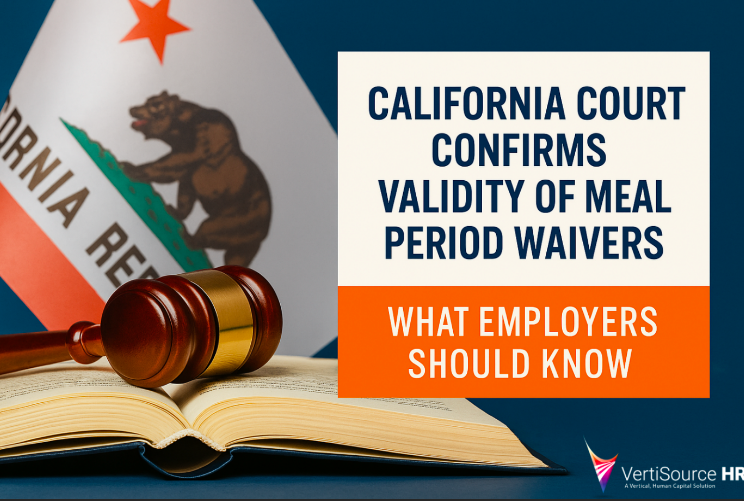TLDR:
Miss one meal break, pay one hour of penalties. Do it repeatedly? You could face six figures in a PAGA claim.
In California, employees can file lawsuits under the Private Attorneys General Act (PAGA) for meal break violations—even if no one files a formal complaint with the Labor Commissioner.
For example, an employer who regularly schedules 20 part-time employees for six-hour shifts without valid waivers could face:
- $20,000+ in premium pay liability
- $100,000+ in PAGA penalties
- Class-action exposure and legal fees that stack up fast
The good news? A recent court ruling reinforces that proper documentation protects you—if you’re doing it right.
Get a Free California Meal Period Waiver Form
Avoid the guesswork—use the same compliant waiver form we give our clients.
Request a free meal waiver form
What You Should Do Now
- Use a written waiver form that’s clear, voluntary, and revocable
- Ensure waived shifts never exceed six hours
- Keep signed copies in each employee’s file
- Train managers to schedule and monitor accordingly
What the Case Says
In Bradsbery v. Vicar Operating, Inc., the California Court of Appeal upheld the use of advance meal period waivers for employees working six hours or less. The case challenged whether blanket waivers signed during onboarding were valid.
The plaintiffs claimed they were required to work 5–6 hour shifts without a duty-free meal break and were owed “meal premiums”—a penalty equal to one hour of pay per violation.
The court found in favor of the employer, confirming:
- A written waiver signed in advance is valid
- Daily waivers are not required
- Waivers are enforceable if the employee never works more than six hours per shift and signs voluntarily
What the Law Requires
California Labor Code § 512 requires employers to provide a 30-minute unpaid, uninterrupted meal period to employees working more than five hours.
However, if the total shift is six hours or less, that meal period can be waived in writing—but only with mutual consent between the employer and employee.
How VertiSource HR Can Help
VertiSource HR helps employers protect themselves with:
- Compliant onboarding forms ready to go
- Scheduling tools that alert managers to shift risks
- Training for supervisors on wage and hour policies
Whether you need to audit your process or implement it from scratch, we make it simple, secure, and scalable.
Need help reviewing your policies or implementing waiver processes?
Let our HR experts take it from here.


